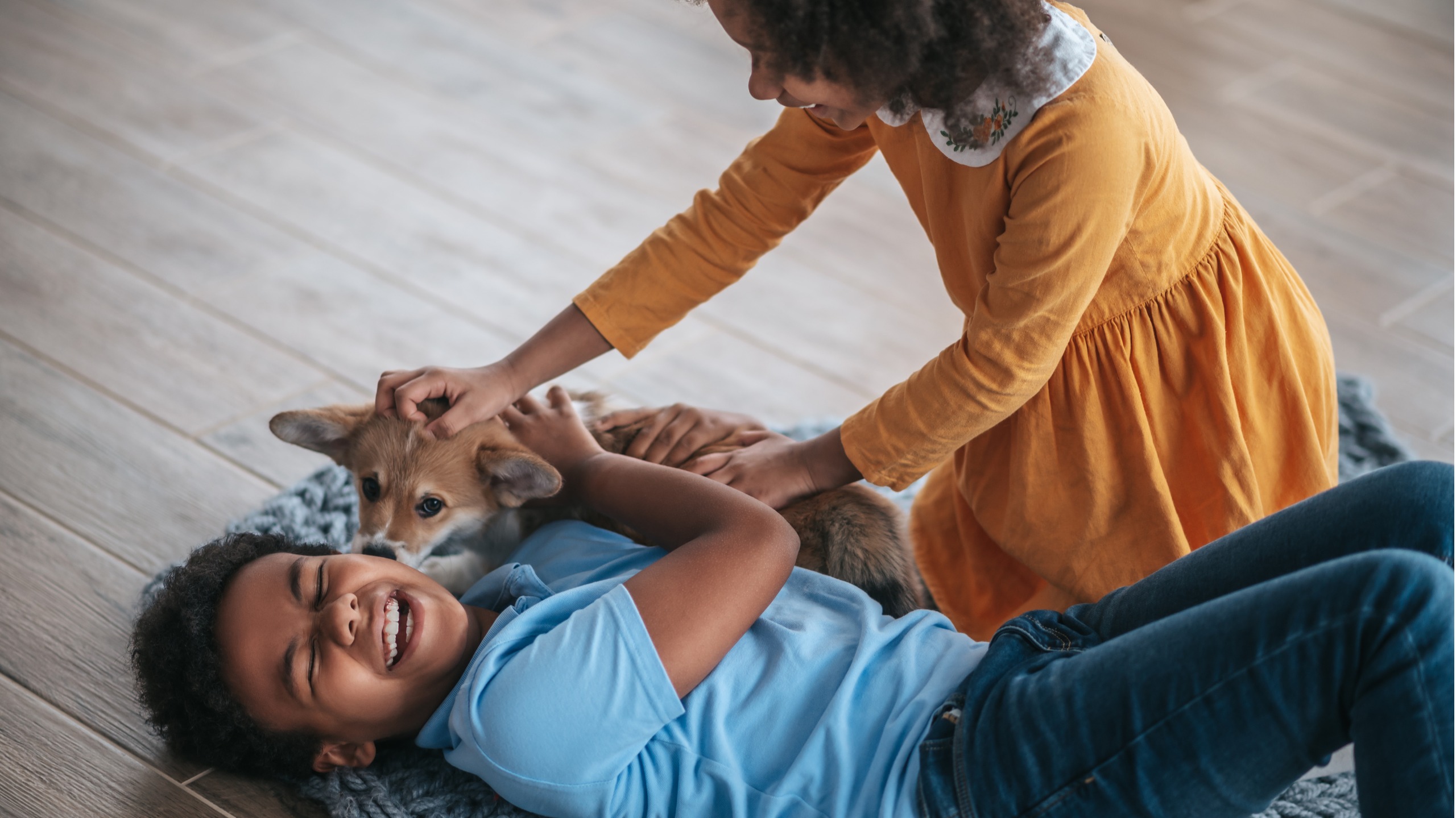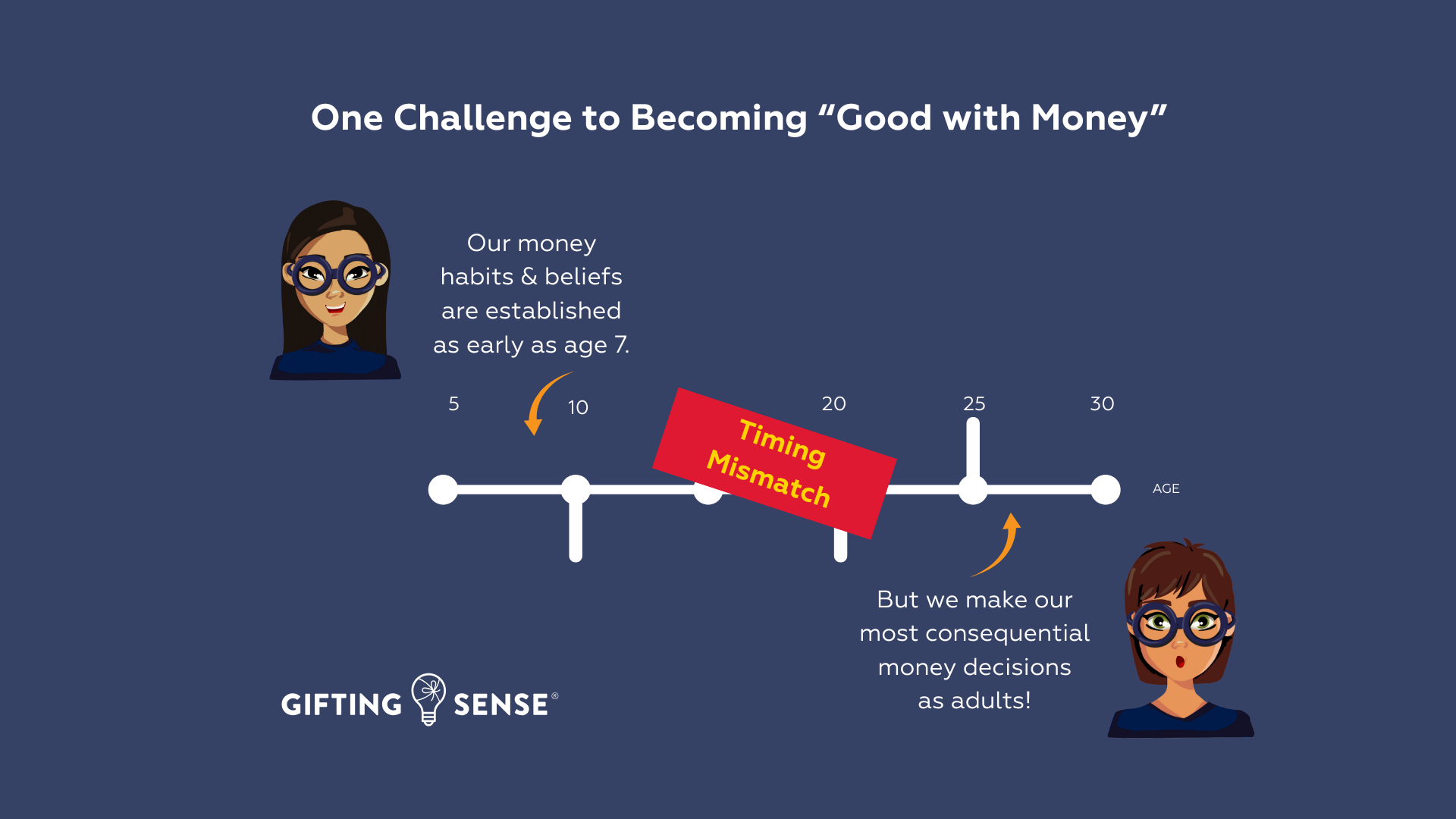This post was published in May 2020 and updated in September 2024.
The pandemic threw families everywhere a real curveball. However, social distancing presented more than just challenges; it also allowed families to talk more. From our vantage point, some opportunities were well-used to discuss money. Money conversations with tweens and teens can enable them to become surprisingly money-smarter. You don’t need to be an expert or download an App. You only have to take some of the time you are already spending together and speak honestly about your experiences earning and spending.
Start with your “firsts”.
Tonight at dinner, consider describing the first time you…rode a plane or went to a concert or professional sporting event. How about the first time you took public transportation from one county to another or drove a car on a highway by yourself? In our experience, sharing the details of firsts can be a great way to begin to develop some money privilege empathy, what we like to call “MPE.”
Sharing details of “firsts” illustrates to tweens and teens that every adult once had youthful ambitions they couldn’t afford. Not everything has changed since we were young; households still have to balance monthly income and expenses. When your kids realize that the first time you flew somewhere was on your honeymoon, if nothing else, because they know that benchmarks in their parents’ lives can have predictive qualities for their own, it registers. And because “firsts” tend to cost money that can seriously deplete household finances, they must be carefully considered and planned.
Money Privilege Empathy does a job.
Money Privilege Empathy helps kids understand why you sometimes have to refuse a spending request. Tweens and teens won’t always let onto that fact, but Dr. Francis Jensen (Author of The Teenage Brain) tells us that even though adolescent brains are not yet wired to consider what often feel like distant consequences, that doesn’t mean you should stop bringing them up. And that even though your kids may dismiss you – your message will register. Wrapping that message in a humorous or poignant story from when you were young helps it all feel a little less like a teachable moment and more like, well, just talking.
Do your kids argue against including a sibling in their plans? When they learn that the first time you attended a professional sporting event was in your senior year of high school – and that you were given the tickets by the owner of the store where you worked part-time for doing an excellent job – but still had to agree to take your brother to be able to go – they’ll soften.
Walking down memory lane with “photographic evidence” is particularly effective.
When it is done in a genuinely and purely nostalgic way, sharing details of your firsts lays the foundation for why you think about and use money the way you do. Our money personalities, all the habits and beliefs we have about money that inform how we think and act with it for the rest of our lives, are largely established by adolescence. Even if your kids disagree with how much of a penny-pincher (or spendthrift) you are – giving them a window into your adolescence delivers valuable insight into why you are the way you are! Supporting the conversation with old photos, memorabilia, or a chat with grandparents about a time you got “caught” always seems to go a long way.
We hung onto hope and, in many cases, got through the pandemic with money-smarter kids. If you’re interested in how young people can quickly research the total value of a purchase (before they make it) on their own or in one of our interactive workshops, please click on the pink or blue buttons below.
Child Development For Parents For Teachers



